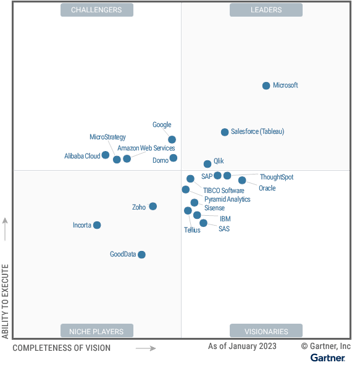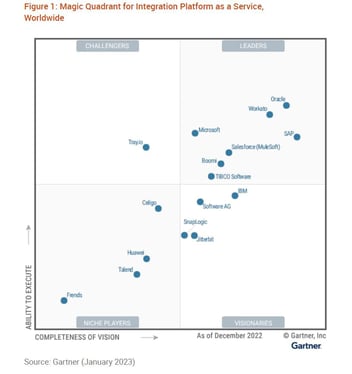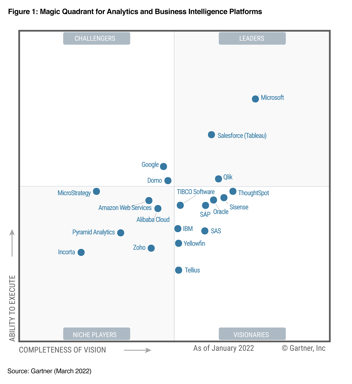Microsoft has been named a Leader in Gartner's Magic Quadrant for analytics and business intelligence.
The research and analysis consulting firm Gartner has published a new Magic Quadrant in February in which it classifies various analytics and business intelligence providers according to whether they are challengers, leaders, niche players or visionaries.
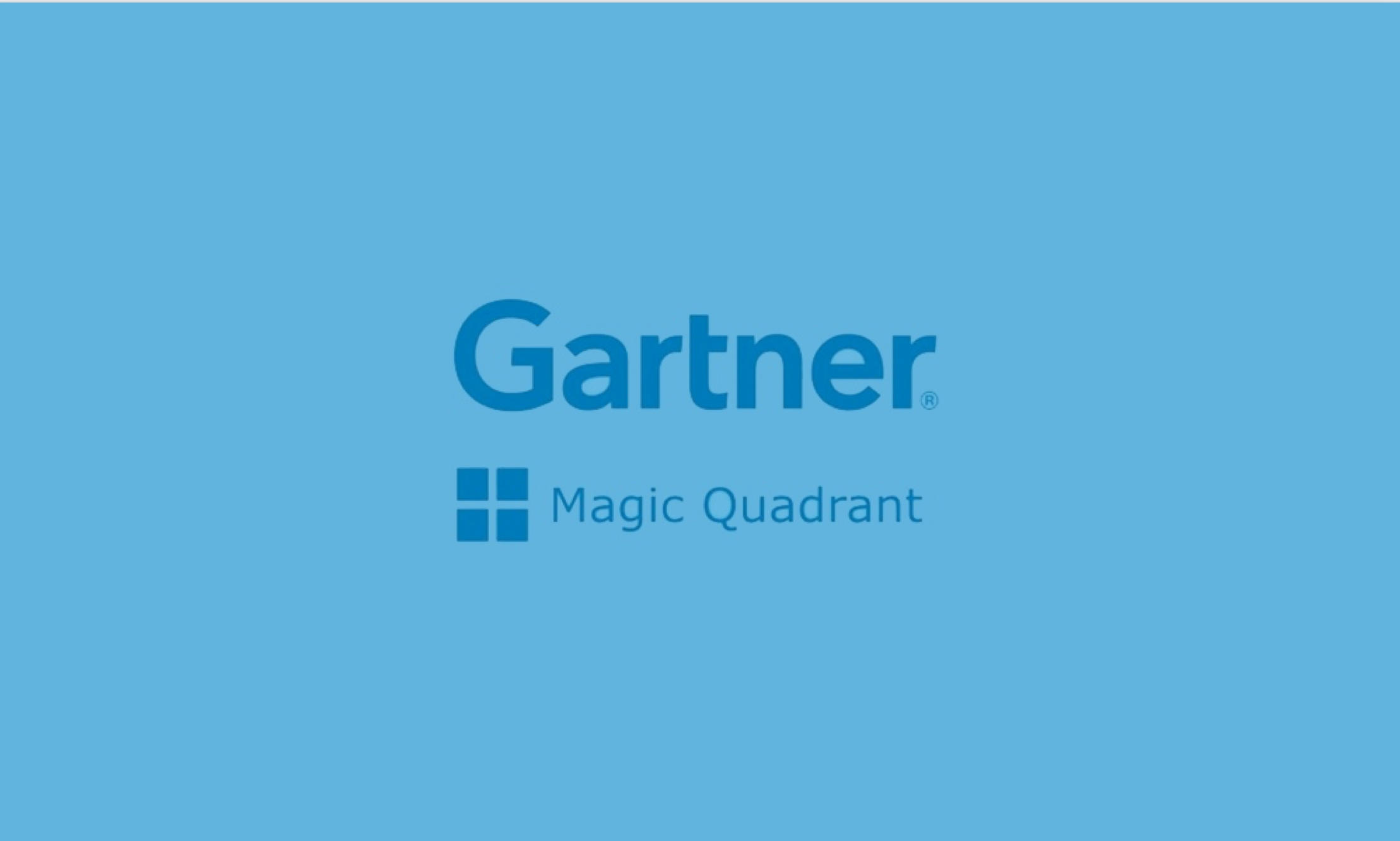
Gartner's magic quadrants provide graphically competitive positioning of four types of technology vendors in markets where growth is high and differentiation is vital.
According to the latest Gartner analysis, the key differentiators for these types of platforms, at a time when cloud ecosystems are booming, will be augmented capabilities. Machine learning and artificial intelligence —assisted data preparation, knowledge generation and explanation— to increase the way entrepreneurs and analysts explore and analyse data, are rapidly becoming key sources of competitive differentiation, and therefore fundamental investments for providers.
The analysis argues that by 2022 augmented analytics technology will be widespread, but only 10% of analysts will use its full potential. In addition, it specifies that 40% of the development of machine learning and scoring models will be in products whose main objective is not machine learning. According to the consultancy firm, in 2025, 80% of consumer or industrial products containing electronics will incorporate analysis in-device.
Taking these aspects into account, the consultancy firm has developed the Magic Quadrant for analytics and business intelligence platforms. The quadrant includes Microsoft, Tableau, Qlik and ThoughtSpot as leaders, Microstrategy, Looker and TIBCO Software as challengers, while Sisense, Oracle, SAS, SAP, Yellowfin and Salesforce are visionaries and Birst, IBM, Information Builders, Domo, Pyramid Analytics, BOARD International, Logi Analytics, Alibaba Cloud and Dundas are niche players.
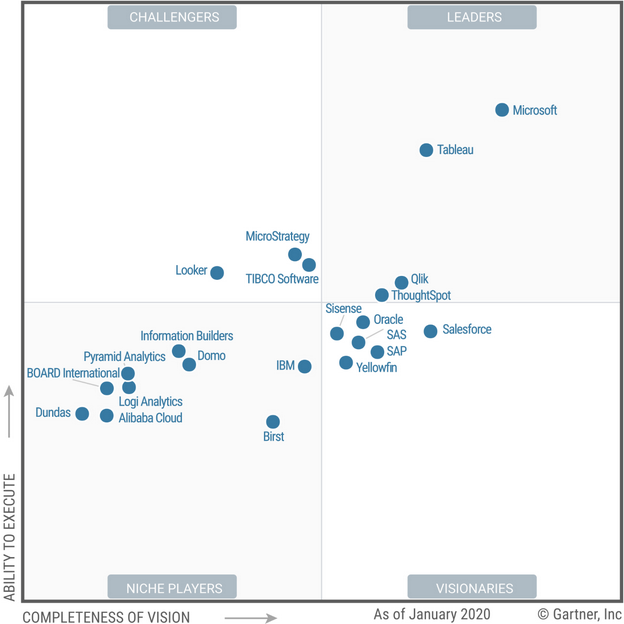
In this quadrant, Microsoft ranks first as a leader in analytics and business intelligence. Gartner considers the technology giant as such thanks to its enormous commercial reach and its visionary and very comprehensive product roadmap.
As Gartner explains, Microsoft offers interactive dashboards, visual-based data discovery and data preparation, and augmented analytics in Power BI. It is available as a SaaS option running on Azure or as an on-premise option on Power BI Report Server. Power BI Desktop can be used as a free, stand-alone personal analysis tool. Installation of Power BI Desktop is required when power users create complex data mashups involving on-premise data sources.
Strengths
The analysis distinguishes strengths and weaknesses on the various platforms. For Microsoft, it considers to be a strength, for example, the almost viral propagation of its BI platform, thanks in part to its price, but above all, to its connectivity and integration with Office 365, which facilitate its implementation in many organizations. The platform also includes calls for "visualization in Power BI", which further increases this reach. Gartner states that Power BI is the most mentioned platform when surveying customers about their choice of analytics and business intelligence platform.
The product's capabilities are another of its strengths. Recent upgrades have made Power BI Pro's cloud service outperform most of its competitors in terms of functionality, thanks to its innovative capabilities in augmented analytics and automated machine learning. AI-powered services, such as text, sentiment, and image analysis, are available within Power BI and are based on Azure's capabilities.
Another strength considered by Gartner is the product's vision. Microsoft continues to invest in a broad set of visionary capabilities that are integrated with Power BI.
Cautions
In terms of precautions, Gartner has found that the local version of Power BI, compared to its cloud version, has some functional gaps, such as dashboards, flow analysis, pre-created content, natural language questions and answers, augmentation (what Microsoft calls Quick Insights) and alerts. These features are not supported by Power BI Report Server.
In terms of connectivity, Power BI offers a very wide range of data connectors, but feedback from users of Gartner's customer reference service indicates that on-premise data gateway query performance is variable and requires effort to optimize. Connectivity to SAP BW and HANA direct queries is problematic, a known problem that Microsoft is working on. Customers generally choose to load data into Power BI, which is more efficient.
In late 2019, Microsoft announced that it was named a leader in five Gartner Magic Quadrants that year. The consulting firm thus certifies the quality and innovation of the technology giant's products.
